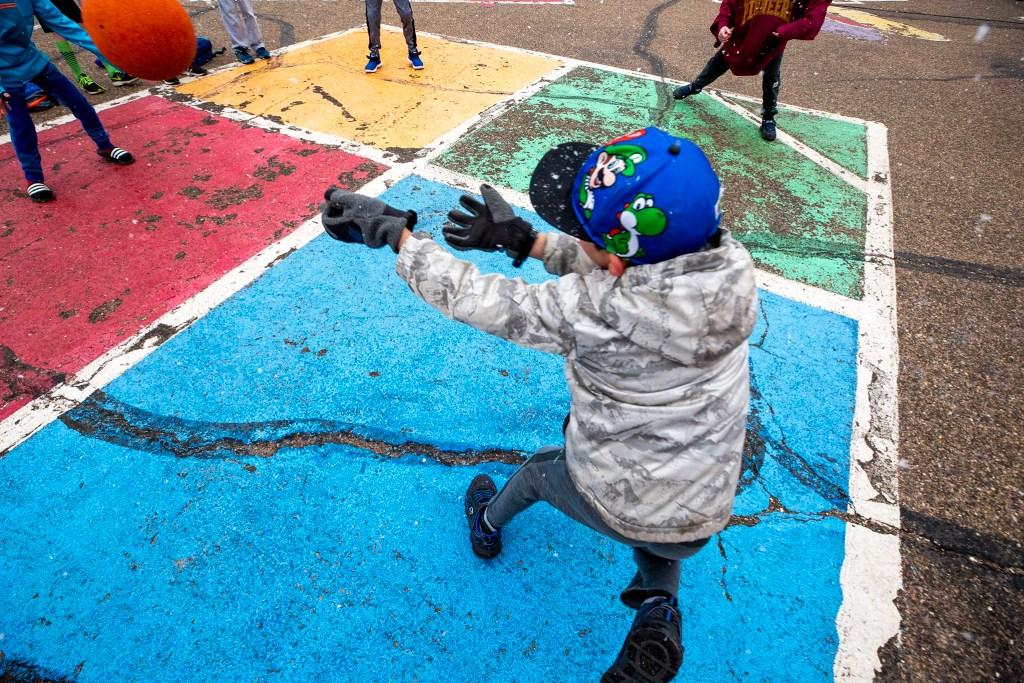
There’s a little extra chaos and anxiety in many homes across the state. After many districts closed schools and extended spring breaks last week to prevent the spread of the new coronavirus, parents are left scrambling with what to do with their kids -- and how to talk to them about the unprecedented disruption COVID-19 has caused in Colorado and around the world.
And then there are the kids: Teenagers are cringing at being stuck at home with parents who are now working at home or out of work. Young children are climbing the walls. And others are worrying about what the future holds with their parents out of work.
“Even for parents who love hanging with their kids, you can only take so much family time before you start to get stressed,” says Craig A. Knippenberg, a licensed social worker who has provided child and family counseling services in Metro Denver for more than 35 years and the author of Wired and Connected: Brain-Based Solutions To Ensure Your Child’s Social and Emotional Success.
“It’s ok,” he says. “This is a parenting experience to which we are all trying to adjust. Just do your best until the coronavirus runs its course.”
Knippenberg typically recommends that parents try to be 80 percent consistent with their parenting strategies. However, this will be one of those times when you will need to let some things go.
Here are some ways Knippenberg and others say parents can take care of their and their children’s mental health and make it through what could be a long and unexpected disruption:
Don’t throw out structure. Knippenberg says: “Sit down with your children and map out how the days will flow. Set up specific times for reading/homework, chores, independent free time, mealtimes, family time and bedtime. Like every teacher, write it down and post the schedule.”
Make time for yourself. Everybody will need a breather right now. Make sure your children know that you will plan blocks of time for yourself and that they will need to self-entertain. This will give you time for needed chores and your own mental-health time. Have several a day and work in times for your own self-reflection, checking in with other parents and exercise time. Knippenberg recommends letting children know that disturbing your time will result in a loss of privileges.
Free play. While officials are asking people to distance themselves from others, getting outside is still allowed and encouraged. Outside time and fresh air has huge physical and mental health benefits. While children might complain about not knowing what to do, they will quickly find something to explore or create while outside, says Knippenberg. If there’s room in the house for one room to be set aside for unbridled free play, do it. Zoom sessions for your children and their friends are also available. This is also a great time to break out old hobbies and jigsaw puzzles. That said, playdates may not be such a great idea right now. Guidance is mixed but it will be important to keep to family units as much as possible.
It’s OK to loosen screen rules ... a bit. Knippenberg typically recommends that families have a limit of a half hour of gaming during the school week and several blocks of gaming time on the weekends. Given these circumstances, he says he’d probably go with weekend rules just to help you and your kids survive. The same is true with TV and Netflix. While binge-watching might be an appealing alternative, you’ll pay the price in your child’s moodiness after you pry them free of their screens. Several one-hour blocks a day is better than binge-viewing.
Get out all those old-fashioned board games. Watch TV together or share an electronic game or two. This would also be a great time to watch old family videos. Connecting with happier times is always good for our mental health.
Stick to a sleep schedule. While it might be tempting for your older children to stay up late every night and sleep late every morning, that’s not going to be beneficial to their physical and mental health. You’ll also be left with very moody children the next day. Stick with your bedtime schedule. Don’t forget to enforce no screen time an hour before bed, Knippenberg recommends.
Stay in touch with your community. Rather than being on the phone or social media all day long yourself, try to schedule set times to check in with your adult friends. You can also consider setting up a Zoom community of friends where you can have a designated time to check-in with each other. Have grandparents do regular videocalls with the kids. Engage in a little virtual babysitting. Millions of parents are wondering if playdates are acceptable. The answer right now is yes, with some “significant limitations.”
Limit the news. For your own mental health, and the mental health of your children, titrate the intake of news. Constantly following the latest coronavirus news will only increase the entire family’s anxiety.
Give kids an outlet to discuss emotions. Journaling is a good way for adolescents to process their feelings in this uncertain time. You can also set aside a time to talk as a family about how everyone is feeling and coping with the outbreak. Knippenberg suggests doing this at the dinner table or after dinner. It’s important to acknowledge their anxiety but also their loss and grief about upcoming trips and school programs on which they will be missing out. Then turn to your family game time and your usual routines.
Adjust to your unique child. The above recommendations need to be adjusted to the age and nature of your child. Children who struggle with impulse control will need more structure and rules than other children. Teens will need to be in contact with their friends over social media. You’ll also need to be aware of teens that will be tempted to sneak out at night to meet-up with their friends.
Have an adventure mindset. In good times and bad, help your child understand that every moment in life, offers opportunities to learn, create and grow, Knippenberg says. Ask your kids what they will remember from this experience. What will they treasure and what would they want to change for generations in the future. One parent reached out to CPR and said her daughter is keeping a journal of things they are doing and seeing because “someday it might be a primary resource for our descendants. This is a moment in time.”
Make sure the information is age appropriate. Emphasize safety for younger children, child development experts Erin and David Walsh write in a piece for Psychology Today. Explain they are safe and being taken care of. For older children, in middle and high school, stick to the facts and make sure you are not sharing too much of your own anxieties with them. Process your feelings mostly with older adults. Harvard Medical School offers some useful ways to talk to children about the new coronavirus with sample questions and answers and how to talk to teens about the new coronavirus, as does the U.S. Department of Health & Human Services: Talking with Children: Tips for Caregivers, Parents and Teachers During Infectious Disease Outbreaks
Wondering what to do with your children during the extended break? We’ve got a few ideas:
- Denverite has plenty of excellent suggestions on what to do during the extended break, which includes all the services that Denver Public Library is offering patrons online.
- Common Sense Media has lots of resources including 25 best podcasts for kids and the 10 Must-Listen Podcasts for Tweens and Teens.
- There are child-friendly yoga poses and workouts on this YouTube kids app.
- The Washington Post’s guide to “Parenting During Coronavirus” is chock-a-block with ideas, from lists of good documentaries kids can watch to great ideas from readers, like creating a movie with their iMovie app, stocking up on ingredients to let kids cook and bake, listening to audio books, and having sports competitions with siblings only, as well as tips to working at home.








